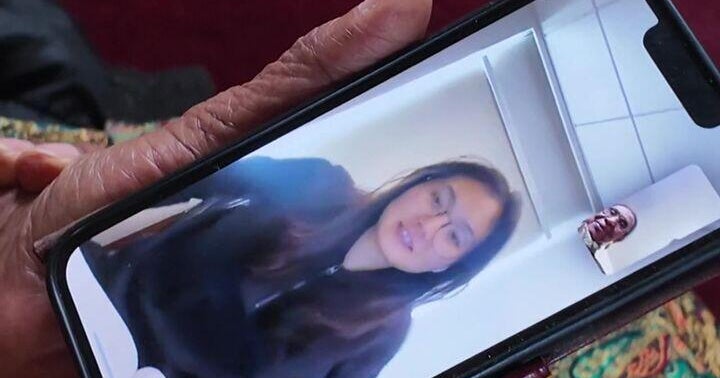Social isolation can have a big impact on our brain health as we age. That’s why those who work with older adults are creating more intergenerational social events.
In CBS News New York’s latest installment of our Cost of Caregiving series, we take a look at the local programs that are keeping older adults thriving.
The Life Story Club
According to the World Health Organization, loneliness and social isolation are key risk factors for mental health conditions later in life. Doctors who study older adults and their cognitive health say social connections help.
“Loneliness and social isolation start to shrink parts of our brain and we know when we shrink parts of our brain — gone forever — can’t build up that muscle,” said Dr. Jennifer Wong, an experimental psychologist and the interim executive director of the nonprofit Life Story Club.
In some cases, social prescriptions are ordered.
“The patients who are prescribed to us are likely to have registered as being depressed or they’re social circle changed, lost a loved one, partner or close sibling live with,” Wong said.
Social intergenerational events like the one organized by Life Story Club earlier this month at in Brooklyn’s Prospect Park is just one example.
“We talked about personal history, family importance … her grandkids growing up today,” volunteer Nara Garber said.

Social intergenerational events were organized by Life Story Club earlier this month at in Brooklyn’s Prospect Park.
CBS News New York
Yvonne Taylor, a 67-year-old Harlem resident, was referred to the program.
“I love hearing stories about her upbringing, family. It makes you realize we are different, but in some ways we are all the same,” Taylor said.
Taylor said the guided storytelling conversations have made all the difference.
“I’m not as depressed as I was,” Taylor said.
NYC’s Friendly Visiting program
The city’s Friendly Visiting program matches homebound seniors 60 and over with younger volunteers to help lessen their social isolation.
“It’s amazing the difference it has made for their brain health, physical health, mental health,” said Suzanne Windland, the program’s director. “For them to have someone to visit them to hear their stories, see them, it gives them a reason to get up in the morning.”
Anna Boulet brought her heritage to New York from Haiti in the 1960s and wove it into the city’s fabric, stitching a family, life and her own fashion style.
“I used to love dresses but they were expensive, so I went to school to learn how to do it,” Boulet said.
Now at 89 and with a seasoned soul, Boulet, who is also a cancer survivor, lives alone in her Queens apartment.
“I do everything,” she said, when asked how she manages. “I cook, I clean, go to supermarket, pharmacy.”

Anna Boulet, left, is seen here with her friend who regularly checks in with her through visits and phone chats.
CBS News New York
Boulet said she gets some help from an aide, but it’s her 29-year old friend who keeps her sharp with regular home visits and video chats.
“We talk about everything,” Boulet said. “We eat together. When she comes, [we] order Chinese food. She helps me with my computer, cellphone.”
Boulet also shared some wisdom.
“Just eat the right food, not too much salt, grease and keep moving. Keep asking questions,” she said.
The goal is to keep the mind healthy and connected through conversation and company.

